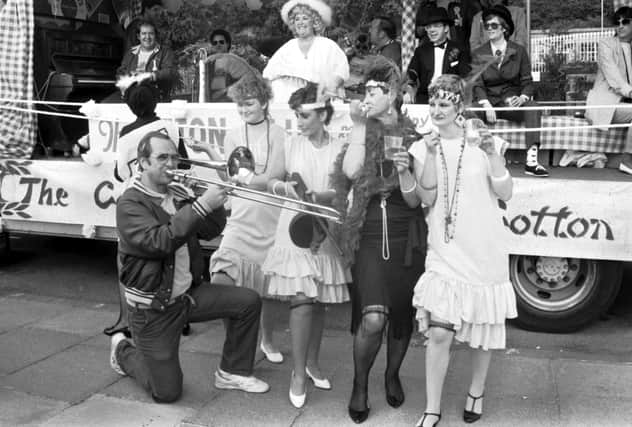After Covid threat passes, we will party like the Roaring Twenties – Stephen Jardine


I’ve given up watching the TV news every night. It’s just too depressing. However some of the programmes on Netflix are even worse. Shows like Chefs Table provide a disturbing insight into another world, one where people used to pay to sit in restaurants and eat food.
I had my last meal out in an Edinburgh restaurant on the day of the lockdown. I went for a lunch with a friend and we felt like the last table in the Titanic dining room. With more staff than customers, catastrophe was in the air.
Advertisement
Hide AdAdvertisement
Hide AdThe lyrics to Big yellow Taxi sum up the feeling since. “Don’t it always seem to go, that you don’t know what you’ve got til its gone.” Joni Mitchell wasn’t singing about restaurants but she might as well have been.
For most people, the experience is about more than just food. From a great sandwich at lunchtime to a delicious pizza or a juicy steak at night, restaurants are simply one of life’s great joys. So when will we visit them again?
The UK’s 25,000 restaurants have been one of the worst affected parts of the economy and it looks like being one of the last areas to emerge from lockdown.
It’s not hard to see why. An academic paper published in the New York Times this week showed how one customer with coronavirus at a restaurant in China in January went on to infect nine other customers, with air-conditioning apparently helping spread the virus around the room. Three months on, when restaurants started to reopen in Shenhzhen, they had to follow stringent procedures including reducing capacity by 50 per cent and checking customer temperatures. Diners were required to enter wearing a mask, taking it off only to eat and drink.
Here restaurants have already started thinking about what life will be like after lockdown. Cutting the number of covers to allow more space is inevitable but other ideas include disposable menus, hand sanitiser on each table and masks for waiting staff to offer visible reassurance. In time, the measures will ease but the industry needs to reopen if it is to survive.
With one in 13 jobs linked to hospitality and the sector contributing £46 billion to the UK economy, a lot is at risk. Already, TexMex chain Chiquitos has said 61 of their 84 UK branches will not reopen with the loss of 1,500 jobs. Many more will also never again open their doors.
Recovery, when it comes, will be slow and stuttering but we need it to happen. The jobs and livelihoods are important but restaurants are so much more than just balance sheets and bank accounts. They are the backdrop for romantic dates and birthdays and anniversaries and staff Christmas parties. They are where we celebrate new jobs and toast loved ones now departed. From the first Pizza Express trip as a kid to the special pensioner’s high tea at the local hotel, they are the life and soul of the land.
If all looks gloomy now, remember the Roaring Twenties. In 1918 the Spanish Flu Pandemic infected a third of the world’s population and killed at least 20 million. Yet just two years later came a bounce-back decade of decadence, enjoyment and hedonism. That should give a ray of hope to every chef and restaurant owner in the land.
Comments
Want to join the conversation? Please or to comment on this article.
